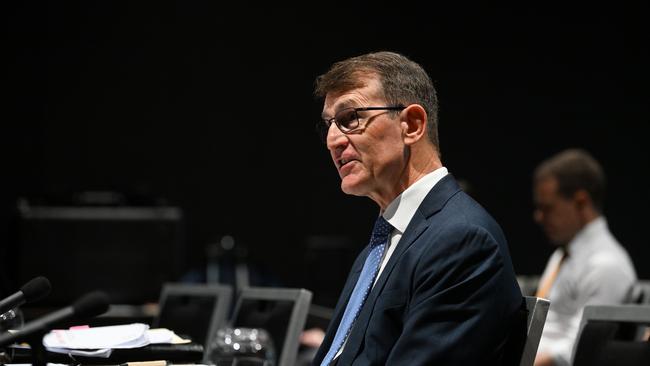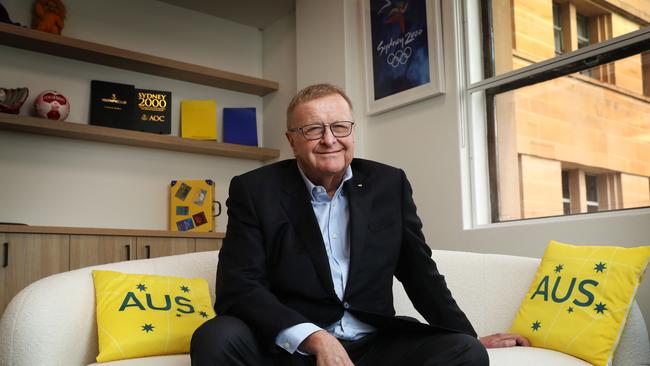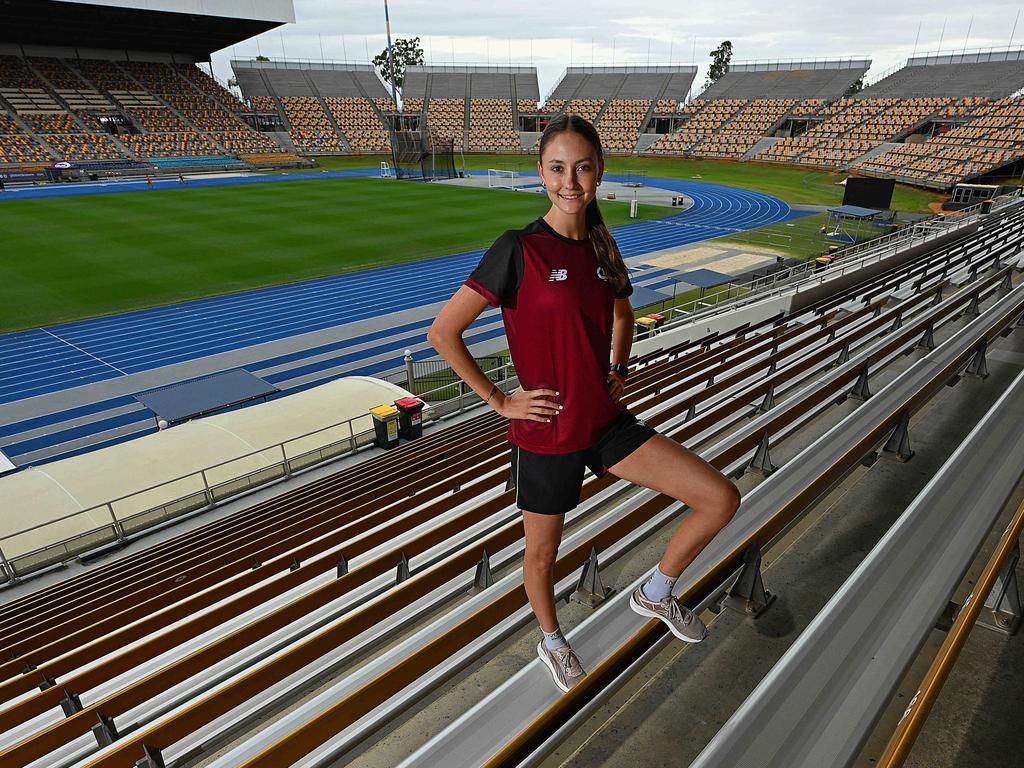Graham Quirk says ‘obvious concerns’ of reputational damage after Olympic planning debacle
Former Brisbane lord mayor Graham Quirk has warned Australia’s international reputation is at risk after months of chaotic infrastructure planning for the 2032 Olympics.

Former Brisbane lord mayor Graham Quirk has warned Australia’s international reputation is at risk after months of chaotic infrastructure planning for the 2032 Olympics.
Mr Quirk, who was appointed by Premier Steven Miles to lead a 60-day venue review earlier this year, told a federal senate inquiry scrutinising preparations for the Games that there were “obvious concerns” about reputational damage.
“It’s important that we be seen to be getting on with preparedness for the games,” he said.
“I believe there is reputational risk.”
Mr Quirk’s venue review last month recommended the controversial Gabba rebuild be scrapped and a new $3.4bn stadium be built at Victoria Park, close to the CBD.
The state Labor government rejected the key findings from the report and instead plans to spend up to $1.6bn upgrading the ageing Queensland Sport and Athletics Centre at Nathan and another $1bn to spruce up the Gabba and “modernise” Suncorp Stadium to hold opening and closing ceremonies.
Mr Quirk told the inquiry on Wednesday that the upcoming October state election had likely influenced the government’s decision not to accept his recommendation for a new stadium at Victoria Park.
“I think any observer would come to the conclusion that there is a fear cost-of-living crisis we’re going through at the moment is driving decisions that would perhaps not normally be the case,” he said.
“There is perhaps a fear building a new stadium would be seen as extravagance.
“I would say even during the Great Depression people were looking for hope – they had a racehorse called Phar Lap. People need to know there’s something coming in this city they can be proud of.”
A taxpayer-funded poll in November, obtained by The Australian, found support for the Brisbane 2032 Olympics had plunged to its lowest levels, with only 38 per cent of voters agreeing the Games were a good idea for the city.
The proposal to upgrade QSAC, which is not on a train line and might seat only 40,000 people, was put forward by Olympic powerbroker John Coates in The Courier-Mail on February 8.
The Miles government then launched a separate investigation to progress the International Olympic Committee vice-president’s QSAC proposal while Mr Quirk’s venue review was still underway.

Mr Quirk, said he was “surprised” to learn government was running a shadow review.
“The panel did not know that at all, it was a complete blindside for us,” he told the senate inquiry.
“We knew the government didn’t have an appetite for a new stadium – we knew that about a week prior.”
Coalition infrastructure spokeswoman Bridget McKenzie asked Mr Quirk whether he believed Mr Miles’ decision to hold an independent review, which he was appointed to lead, was a “political fix ‘’ after public support for the Gabba rebuild plummeted.
“I really don’t know what was going on,” he said.
“We were surprised to know there was a second piece of work happening while we were undertaking our work.
“We don’t know what discussions were taking place with the IOC through John Coates or others.”
Mr Coates, who gave evidence to the committee via video-link, said he was phoned by Infrastructure Minister Grace Grace on March 15 – three days before Mr Quirk’s review was published – and told the government was planning to reject the Victoria Park option and go with his preferred QSAC upgrade.








To join the conversation, please log in. Don't have an account? Register
Join the conversation, you are commenting as Logout